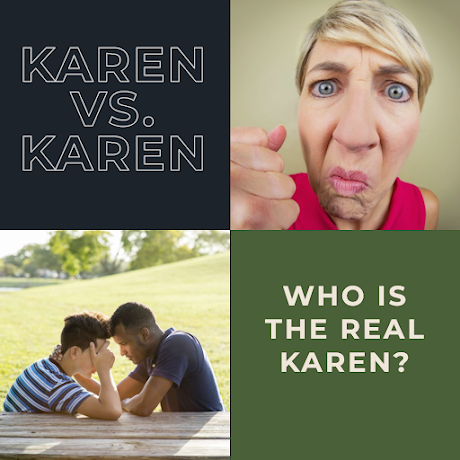Unintended Consequences of a Stereotype - The Karen Meme
Introduction
In recent years, the name "Karen" has taken on a new meaning, one that has sparked debates and discussions in various online and offline communities. Originally a common given name, "Karen" has transformed into a stereotype and meme, often associated with a particular type of behavior. While this meme began as a way to humorously criticize rude and inconsiderate individuals, it has inadvertently created collateral damage by affecting people who bear the name "Karen."
The Birth of the "Karen" Stereotype
The "Karen" meme gained popularity on social media platforms and the internet as a whole. It typically depicts a woman who is perceived as entitled, demanding, and often irrational in public situations. She is often portrayed as speaking to managers, complaining about trivial issues, and displaying a lack of empathy or consideration for others.
The meme was initially intended to call out genuinely inappropriate behavior in a humorous manner. However, it quickly evolved into a stereotype that has been used to mock any woman who expresses dissatisfaction, assertiveness, or assertive opinions, even when they are entirely justified. This oversimplification of the term has led to a significant number of innocent individuals being unfairly stigmatized.
The Unintended Consequences
While it's essential to call out and address problematic behavior when we encounter it, it's equally important not to generalize or stereotype an entire group based on the actions of a few. The "Karen" meme has unintentionally harmed individuals who bear the name, as they may face prejudice or teasing purely because of their moniker.
Imagine being named Karen, a name you've had since birth, and suddenly finding yourself subject to eye-rolls, mockery, or negative assumptions solely because of a meme associated with your name. It's a situation that can be hurtful and unjust.
The Importance of Empathy and Understanding
It's crucial to remember that names don't define a person's character or behavior. While we should continue to hold individuals accountable for their actions, we should do so without unfairly stigmatizing others who share the same name. Instead of perpetuating stereotypes, we can strive for more empathy and understanding in our interactions with others.
Additionally, we can all play a role in changing the narrative by discouraging the casual use of stereotypes and memes that may hurt or demean others. Recognizing that people named Karen, like anyone else, are unique individuals with their own experiences and qualities is a step toward promoting fairness and inclusivity.
Conclusion
The "Karen" meme, initially created to criticize rude and inconsiderate behavior, has unfortunately evolved into a stereotype that affects people who bear the name "Karen." While it's essential to address problematic behavior when we encounter it, we must do so without perpetuating unfair stereotypes and prejudices.
In our quest for social justice and inclusivity, let's remember the importance of empathy, understanding, and fairness. By treating individuals based on their actions rather than their names, we can contribute to a more compassionate and accepting society, where no one is unfairly judged or ridiculed due to a mere coincidence of nomenclature.



Comments
Post a Comment